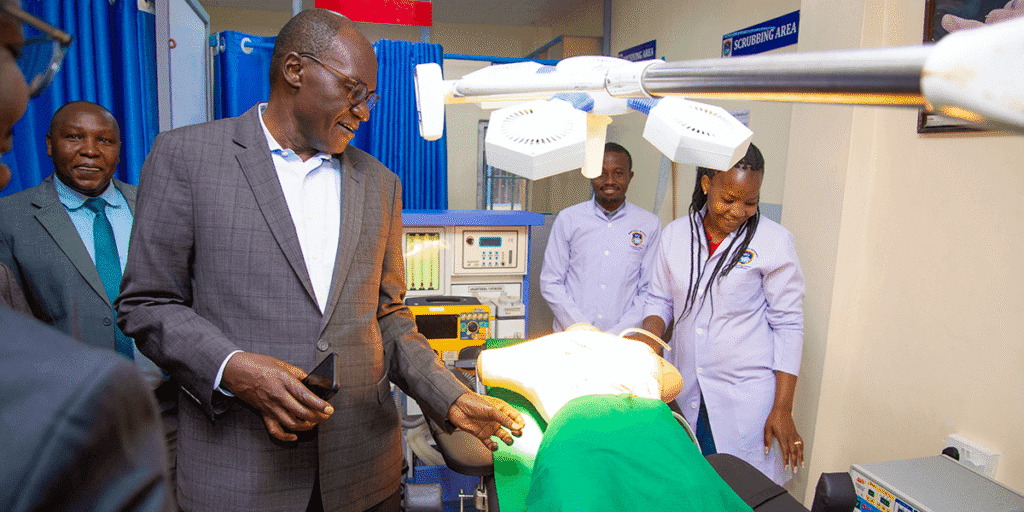
Dr Patrick Amoth, the Director General of Public Health, said the government has achieved key milestones
The Ministry of Health has reported steady progress in the implementation of Universal Health Coverage (UHC) and expressed optimism about achieving the goal of providing all Kenyans access to quality healthcare without financial hardship by 2030.
Dr Patrick Amoth, the Director General of Public Health, said the government has achieved key milestones across UHC’s pillars, including health insurance and financing, recruitment of human resources, technological upgrades in health management systems, and improvements in integrity and accountability.
He made the remarks on Friday during a courtesy call to Mount Kenya University (MKU) Vice Chancellor Prof Deogratius Jaganyi, following an invitation from the MKU College of Health Sciences.
Dr Amoth, accompanied by senior Ministry of Health officials, held a meeting with MKU leadership to explore areas of collaboration and continuous improvement in health training and service delivery.

He emphasised the four pillars of UHC, noting that universities and other training institutions play a critical role in developing human resources for the health sector.
He underscored the need to “train more health professionals to bridge the shortage, especially in sub-Saharan Africa.”
In Summary
- He made the remarks on Friday during a courtesy call to Mount Kenya University (MKU) Vice Chancellor Prof Deogratius Jaganyi, following an invitation from the MKU College of Health Sciences.
- Dr Amoth, accompanied by senior Ministry of Health officials, held a meeting with MKU leadership to explore areas of collaboration and continuous improvement in health training and service delivery.
Dr Amoth also cited research received by the ministry pointing to a rise in infectious diseases such as tuberculosis among young people, calling for long-term planning in training, prevention, and treatment strategies.
He further highlighted challenges affecting the scope of practice for oral health graduates, as well as internship issues facing dental technologists and community oral health officers.
Dr Amoth pledged the ministry’s support to MKU as it plans to launch a Bachelor of Dental Surgery programme. During his visit, he toured the university’s laboratories and the dental clinic at Thika Level Five Hospital.
He was also briefed on recent developments at the College of Health Sciences. “The university is committed to training healthcare professionals as well as complying with relevant regulatory agencies,” said Dr Josephat Njuguna, Principal of the College of Health Sciences at MKU.

The Ministry of Health delegation toured MKU’s two ultra-modern nursing skills laboratories, which are equipped with high-fidelity manikins, an operating theatre, and other advanced teaching models.
They were also briefed on the university’s collaboration with the Japan International Cooperation Agency (JICA) in a malaria elimination project, which led to the construction of the Malaria Elimination Centre for Sh100 million.
As part of its community engagement efforts, MKU has a public-private partnership with the Kiambu County Government at Thika Level Five Hospital, where the university has constructed a funeral home and anatomy laboratory for Sh300 million and renovated the hospital’s dental clinic.
The MKU College of Health Sciences hosts five schools: the Medical School, School of Pharmacy, School of Clinical Medicine, School of Nursing, and School of Public Health. MKU continues to partner with industry and institutions to offer practical training opportunities for its students.



